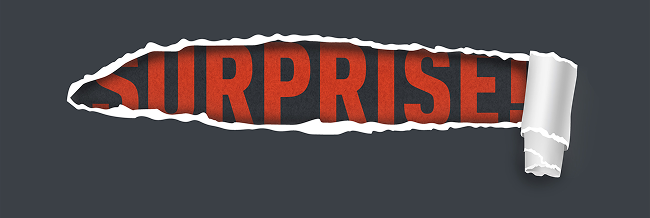Human Authored content draws from personal experience and creative intuition that AI cannot replicate, resulting in work with greater authenticity, emotional depth, and original perspective.
The average person today receives more information on a daily basis than the average person received in a lifetime.
“The average person gets 1 digital interruption every 3 minutes, or approximately 20 an hour.”
You might describe it this way: Information overload. The consequence of cheaper technology that is easier to use and more widely adopted.
I feel the pain, and I bet you do too.
X
AI
Social Media
300+ emails a day
Streaming
Mobile
YouTube
Eating three meals a day
Working out
Reading a book
Podcast
The job
Time with family
Writing this blog
The problem is there isn’t more time in a day.
Several years ago the New York Times published an article titled: Serendipity, Lost in the Digital Deluge which discusses Facebook and X “spewing a stream of suggestions about what to read, hear, see, and do.”
“We’ve gained so much in the digital age. We get more entertainment choices, and finding what we’re looking for is certainly fast.”
“But we’ve also lost something as well: the fortunate discovery of something we never knew we wanted to find. In other words, the digital age is stamping out serendipity.”
Everything is filtered and vetted. AI and machine learning have become primary tools for sorting and presenting relevant information. We see the evolution of what used to be basic content filtering to sophisticated personalization engines.
And we are faced with new data challenges such as information authenticity. Such as my note at the top of this article to let you know it was authored by a human, me, and is not AI-generated or fake content. There are also privacy concerns and data ownership. There is an overwhelming volume of short-form video content along with the rise of super-apps that consolidate multiple services in one platform.
We are discovering what everyone else is learning and usually from the people we’ve selected because they share our tastes.
What is missing?

The magic moment of discovery!
There is just too much information being thrown at us. As we pay for that with our time, the human need for surprise presents an opportunity for your business.
Can you sort the information and provide the relevant thoughts to the specific person who doesn’t yet know he or she needs it?
My hunch is the people who figure out ways to reduce noise and effectively sort data will succeed in a massive way.
Successful Approaches to to Sort Data in 2025
The landscape of data sorting has evolved dramatically the last year. What once seemed like a distant possibility has become reality, as innovative companies have built entire business models around helping us navigate information overload.
Consider how specialized knowledge networks have become vital professional tools. Industry-specific platforms now filter the torrent of information into manageable, relevant streams tailored to particular domains.
Today’s most effective systems understand not just what content might interest you, but when you need it and in what format. They recognize the difference between your information needs during focused work versus casual browsing, adjusting both content selection and presentation accordingly.
Perhaps most interesting is the emergence of human-in-the-loop curation models. These hybrid approaches recognize that pure algorithmic sorting often misses nuance and context. By combining AI efficiency with human judgment, these systems deliver information that feels thoughtfully selected rather than mechanically filtered. Subscription newsletters curated by domain experts but powered by sophisticated analytics exemplify this balanced approach.
Finally, we’ve seen the rise of “information sanctuaries” – tools, like the Forest App, specifically designed to provide refuge from the constant barrage of notifications and content. These solutions don’t just sort information; they intentionally create environments where focused attention becomes possible again.

Digital spaces that limit inputs, batch notifications, and create distraction-free zones have become increasingly valuable, such as the Minimalist Phone, as attention becomes our scarcest resource.
In 2020, I predicted that “people who figure out ways to reduce noise and effectively sort data will succeed in a massive way” has proven remarkably prescient. Those who’ve built these solutions aren’t just helping us manage information—they’re enabling us to reclaim our attention and find meaning in an age of overwhelming content.
COMPLETE THE FORM TO
BOOK A 20 MINUTE STRATEGY CALL
"*" indicates required fields
